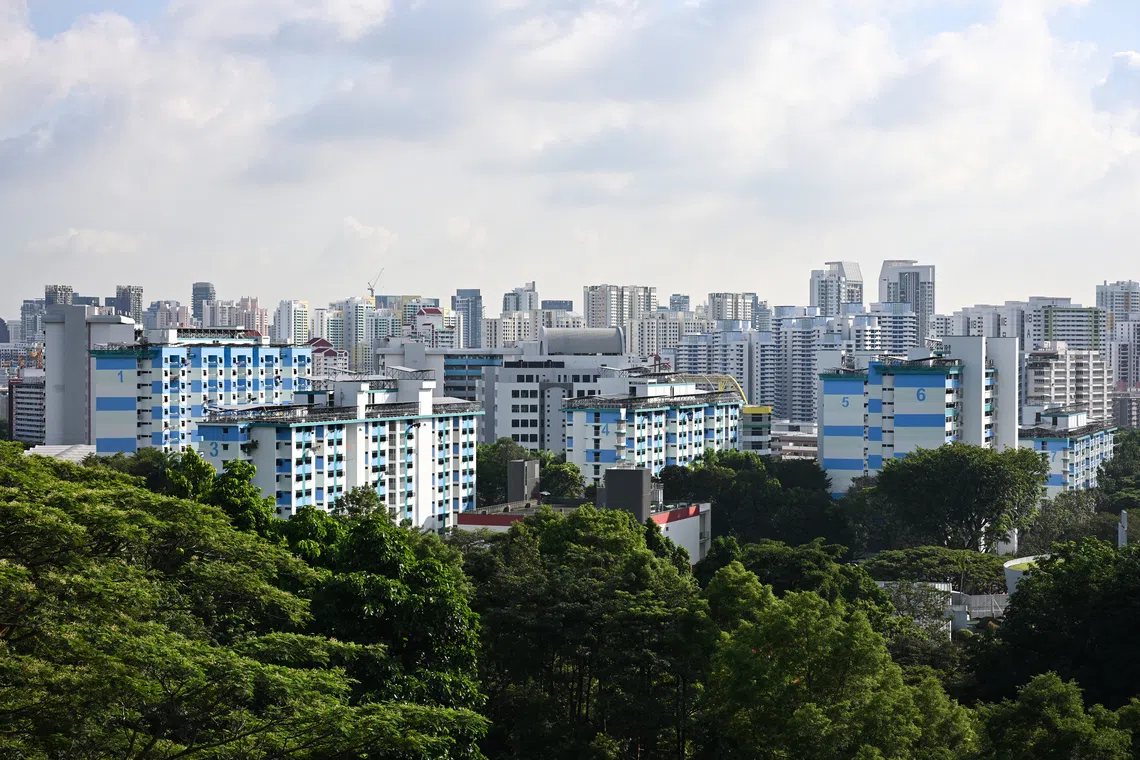For Vers to work, compensation should account for varied needs of HDB flat owners: Observers
Sign up now: Get ST's newsletters delivered to your inbox

Observers cautioned that the Vers scheme will need to address differing circumstances to be successful.
ST PHOTO: LIM YAOHUI
- Vers offers HDB owners in older estates a chance at redevelopment before leases expire, but compensation will be less than Sers.
- Experts highlight the need for tailored Vers compensation due to diverse household needs and financial situations.
- Sociologists emphasise leasehold realities, suggesting compensation for remaining lease periods and alternative housing options as fair.
AI generated
SINGAPORE – Compensation for flat owners under the Voluntary Early Redevelopment Scheme (Vers) should account for the varied needs of current and future HDB residents, policy experts said in response to news that the scheme will be fleshed out in the next five years.
The residents include seniors with insufficient savings for new homes, for example, as well as multi-family households who may need larger or multiple replacement flats.
Observers cautioned that the scheme, which National Development Minister Chee Hong Tat said on Aug 5 is likely to be launched in the first half of the 2030s
Under Vers, owners of HDB flats that are about 70 years old and above in select precincts choose if they want their homes to be acquired by the Government for redevelopment before their leases run out.
Unlike the Selective En bloc Redevelopment Scheme (Sers) – a compulsory scheme where residents are compensated based on the market value of their flats when a project is announced – Vers’ terms will be less generous because the flats are older.
Details of the Vers framework, such as the proportion of “yes” votes needed for projects to proceed, have not been announced, and the compensation package is something Mr Chee said the Government will work on in its current term, which will end in 2030 at the latest.
Sociologist Chua Beng Huat noted that households in Vers precincts have different needs, as well as differing financial capacities to pay for a new flat – whether a resale unit or a new replacement flat, should one be provided.
For instance, he said, leaseholders will be of different ages, while their family members will also be in different stages of life, which will make the impact of Vers complicated and wide-ranging.
Professor Chua, emeritus professor at the NUS Department of Sociology and Anthropology, said a “one-size-fits-all” compensation policy may thus not work.
He suggested that policymakers may instead have to consider the circumstances of each household to determine how they are compensated.
Citing an example of how multi-family households living in kampungs were resettled in Housing Board flats in the past, Prof Chua suggested that it may be prudent to consider the circumstances of similar households undergoing Vers, where each family in these households is offered alternative housing based on their needs.
He said family members of the older generation could be offered a smaller flat on a shorter lease, with younger family members given the option of a separate flat on lease.
Professor Sing Tien Foo, NUS Business School’s provost chair professor of real estate, added that making Vers equitable for current and future flat owners is also complex.
Noting that residents of Vers sites will receive less generous compensation terms than those of Sers projects, Prof Sing said that they should nevertheless not be worse off than future owners of new flats built on Vers sites – these presumably will have fresh 99-year leases and come with the typical market subsidies priced into Build-To-Order flats.
Referencing the goal of 99-year leases – to ensure that land can be recycled and used by future generations – sociologist Tan Ern Ser, an adjunct principal research fellow at the Institute of Policy Studies, said Vers residents should not expect their leases to be refreshed.
“Unfortunately, Singaporeans need to recognise that leasehold is leasehold,” said Dr Tan.
“A reset would render the leasehold meaningless.”
Even if fresh 99-year leases are offered, some households, such as seniors with flats at the tail end of their current leases, may not have enough money to purchase a flat on the fresh lease, he said.
Dr Tan said a more reasonable scenario will instead be for leaseholders of Vers flats to be compensated for the remaining period of their leases and given access to alternative housing arrangements with shorter leases.
“Without Vers, those who survive till the end of the 99-year lease will find themselves with no compensation and no housing,” said Dr Tan.
“This scenario is worse than having some compensation and an offer of affordable alternative housing.”



